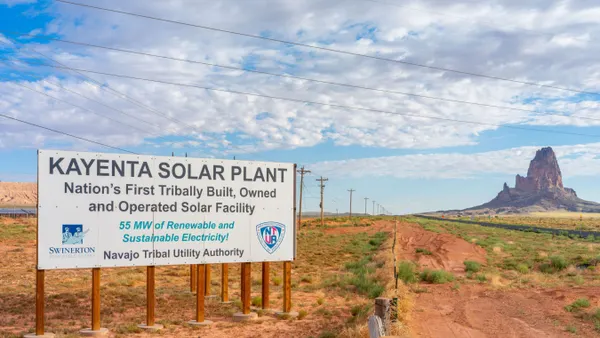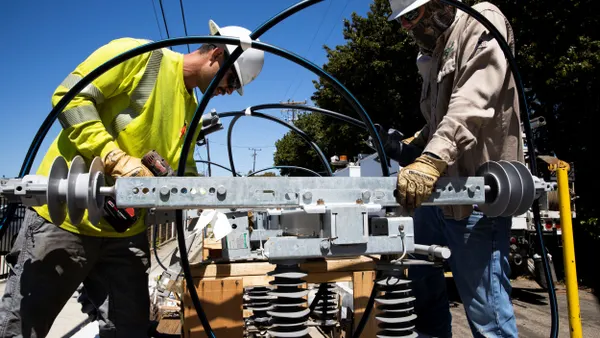Dive Brief:
- Tesla is considering expanding its Gigafactory to meet growing demand for a line of batteries it announced at the beginning of the month, EnergyWire reports.
- Interest in the company's PowerWall — a rechargeable lithium-ion battery for the home — and utility-scale system, was so strong that Tesla is considering boosting output by 50%.
- While the PowerWall system is available for order now, Tesla's Gigafactory is not expected to be complete until 2016 or 2017. Until then, production will remain limited.
Dive Insight:
Tesla's announcement that it would produce two lines of batteries, one of which could help take a residential homeowner completely off the grid, has generated so much interest that the company is considering significantly expanding production. But, as EnergyWire points out, the number of batteries on the market is still small because the Gigafactory is not expected to be completed for at least another year, and likely longer.
"No way that we could possibly satisfy this demand this year, and we're basically like sold out through the middle of next year in the first week. It was just crazy," Tesla CEO Elon Musk told industry analysts during a conference call.
With affordable energy storage paired with renewable resources like rooftop solar, Musk says Tesla can help "fundamentally change the way the world uses energy."
The PowerWall is available in two sizes: a 10 kilowatt-hour battery for backup applications and the 7 kilowatt-hour battery for daily cycling applications. The utility-scale PowerPack will be a 100 kWh battery that can be stacked to scale up to a gigawatt-class system.
The larger batteries will cost $250/KWh, or $25,000; the home systems range between $3,000 and $3,500, not including installation and connection to a rooftop solar system.














